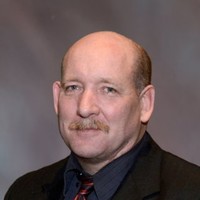Mostafa Abourayya's Email & Phone Number
Senior Director Procurement MEA @ Mars
Mostafa Abourayya Email Addresses
Mostafa Abourayya Phone Numbers
Mostafa Abourayya's Work Experience




Direct Materials Procurement Manager &Regional Category Leader (Middle east&Africa)
January 2010 to January 2015




Horizonssoftware
Business Consultant
January 2004 to January 2006

Abourayya Co.
Executive Manager
January 2003 to January 2004
Show more
Show less
Frequently Asked Questions about Mostafa Abourayya
What is Mostafa Abourayya email address?
Email Mostafa Abourayya at [email protected] and [email protected]. This email is the most updated Mostafa Abourayya's email found in 2024.
How to contact Mostafa Abourayya?
To contact Mostafa Abourayya send an email to [email protected] or [email protected].
What company does Mostafa Abourayya work for?
Mostafa Abourayya works for Mars
What is Mostafa Abourayya's role at Mars?
Mostafa Abourayya is Senior Director Procurement MEA
What is Mostafa Abourayya's Phone Number?
Mostafa Abourayya's phone (**) *** *** 913
What industry does Mostafa Abourayya work in?
Mostafa Abourayya works in the Food Production industry.
Mostafa Abourayya Email Addresses
Mostafa Abourayya Phone Numbers
Find emails and phone numbers for 300M professionals.
Search by name, job titles, seniority, skills, location, company name, industry, company size, revenue, and other 20+ data points to reach the right people you need. Get triple-verified contact details in one-click.In a nutshell
Mostafa Abourayya's Personality Type
Extraversion (E), Intuition (N), Feeling (F), Judging (J)
Average Tenure
2 year(s), 0 month(s)
Mostafa Abourayya's Willingness to Change Jobs
Unlikely
Likely
Open to opportunity?
There's 93% chance that Mostafa Abourayya is seeking for new opportunities

































Mostafa Abourayya's Social Media Links
/in/abourayyam